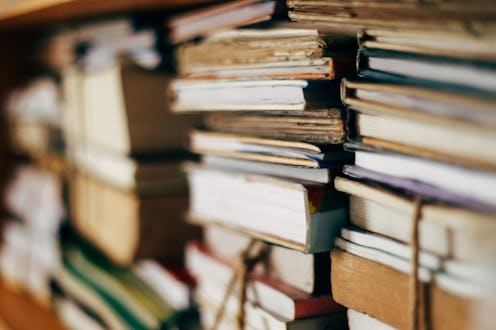What better way to celebrate International Women's Day than to spend it deep-diving into literature created by some of the world's greatest minds? In honor of today's holiday, Cambridge University Press has made a collection of writings - blog posts, book chapters, articles, interviews - by prominent women thinkers available online through the month of March. Yes, you read that correctly: Free books from Cambridge University Press' incredible literary archive. By women, about women, for women. Happy International Women's Day, indeed.
In an announcement published earlier today, Cambridge University Press introduced their initiative, which became what seems to be now an annual tradition in 2017, as a way of actively broadening access to their resources. "We see it as intrinsic within our role to support, develop and publish the highest standards of education and research for everyone and by everyone, irrespective of gender, race, age, or sexuality," said Mandy Hill, Managing Director for Academic Publishing at the Press. "This year we have expanded our IWD2018 campaign to include work from all our academic subjects and have made content free to ensure accessibility.”
International Women's Day, which began being celebrated on March 8 in 1975, was actually first created by the Socialist Party of America (in 1909), to commemorate the 1908 garment workers' strike in New York City. For over a century, the "holiday" has proved a useful organizing tool for protests around the world.
And at the heart of Cambridge's project — breaking down academic barriers — is an important statement about feminism. That it's an ideology that should not and cannot be divorced from racial and economic politics. That education is not a privilege - it's a right. And that engaging in education, giving yourself permission to explore history and new ideals and different schools of thought is the best way to
Check out some of the incredible works being highlighted by Cambridge's 2018 Interational Women's Day campaign below - and check out the full collection here.
Happy reading!
'The Logics of Gender Justice: State Action on Women’s Rights Around the World' by Mala Htun and S. Laurel Weldon
Mala Htun and S. Laurel Weldon's newly published book dives deep into the when and the why of governmental support for women's rights. How have women's issues fit into the larger, social landscape? Why are some causes supported and others castigated? And how can we break through these barriers to achieve a wider range of revolution?
'Radio and the Gendered Soundscape' by Christine Ehrick
Right now, we're in the midst of a radio rebirth — everybody and their mom wants to tell you about some podcast they just "discovered" - but in the mid-1900s, in Latin America, was born the first all-women's radio station in the Western Hemisphere. In Christine Ehrick's fascinating 2015 media study, read up on the ways gender is treated, discussed and performed — in the sonic sphere.
'The Cambridge Introduction to Margaret Atwood' by Heidi Slettedahl Macpherson
If you're about to descend upon Margaret Atwood's full bibliography (and why wouldn't you want to academically stalk the creator of "Alias Grace" and "The Handmaiden's Tale"?!), make a stop at the Cambridge Introduction to Margaret Atwood. With chapters on Atwood's work within the Canadian feminist scene, critical reactions and her own personal history, this long-form introduction will have you reading her work in a whole new light.
'Depression and the Self: Meaning, Control and Authenticity' by Tamara Kayali Browne
Anyone who has experienced depression knows, intimately, the ways in which that disease isolates and fosters self-doubt. Based around a series of interviews with women suffering through various forms of depression, Tamara Kayali Browne's psychological study explores the ways that perception of self and authenticity play not only into the manifestation of depression, but in its treatment.
'Gender Hierarchy in the Qur'ān' by Karen Bauer
Trace the interpretations of women's rights within the Qur'ān from their Medieval beginnings to their modern forms, including interviews with a number of prominent, contemporary scholars. The intersection of religion and feminism is always a fascinating one, and in this case, understanding the ways that social and historical context influence religious practices is an invaluable lesson.
